KIRBY on Her New Album ‘Miss Black America’, Food Deserts in Mississippi, and Reclaiming Southern Soul
Miss Black America is a personal archive of everything KIRBY's fighting to preserve.
Talking to KIRBY didn’t just feel like a conversation with an artist – it felt like catching up with a cousin. I grew up in Virginia, Louisiana, and Florida, and I currently live in Georgia. KIRBY was born in Tennessee and raised in Mississippi – so our conversation hit a little different. When she spoke of family gatherings, dollar stores, and hot plates after Sunday service, I knew exactly what she was putting down. Her new album, Miss Black America (out August 29, 2025), is more than a musical project — it’s a cultural reclamation. It’s a homecoming, a preservation effort, and a personal archive of what it means to be Black, Southern, and proud of it.
“When I think of the South and I think of my childhood, I think of such a safety,” she says. Born in Memphis and raised in Mississippi, KIRBY grew up embedded in the rhythms of gospel and familial love. “My grandma’s trailer was everything. That’s where we would go after church. We would change clothes, go to the corner store, and get some pork rinds and a lil Fanta. My aunties and cousins would be back at the house. That was my weekend.”
“The small church with wooden red pews, my cousins leading the songs. That was my bubble. And it was love.”
That love radiates across Miss Black America, a record she describes as “my Mississippi experience.” It’s not a sweeping political commentary or abstract symbolism — it’s intimate, specific, and grounded in family. “When I sing about reparations, I’m not pointing at the government. I’m thinking: if my grandmother’s life had been different, what would that have meant for her children? Or for me?”
Songwriting Showed Her Who She Wasn’t
Before her artist career took flight, KIRBY (a proud Stax Music Academy kid) wrote for some of the biggest stars on the planet: Rihanna’s “Four Five Seconds”, Ariana Grande’s “Break Your Heart Right Back”, Beyoncé’s “Die With You”, etc. But even as her pen soared, her voice was being pushed into smaller boxes. “I remember one time I was doing a demo for Shakira,” she laughs. “I did the whole thing in a Shakira voice. My publisher was like, ‘Never do that again. If you’re going to write a song, write it in your voice.’”
At the time, everyone wanted pop writers — think Katy Perry and the catchy radio hit of the 2010s. But KIRBY’s voice, like her identity, couldn’t be diluted. “I sing big,” she says. “And I was trying to be a chameleon and minimize my voice so people would cut my demo.”
“Songwriting showed me what I wasn’t meant to do. It showed me what I wasn’t. It helped me find my no.”
That “no” has turned into a loud and clear “YES” on KIRBY’s Miss Black America. The album is unapologetically Southern, unbothered by trends, and firmly anchored in her upbringing. “This album isn’t trying to be anything but what it is,” she says. “It’s not a finger-wag. It’s not about blame. It’s about what I’ve seen. What I’ve lived.”
Mississippi Reimagined
KIRBY knows what people imagine when they think of Mississippi. “Close your eyes. You probably think of ‘Green Book’ or whatever they’ve sold you on big screens. And we do have a bloody history. That’s true. But that’s not all we are.”
Part of Miss Black America is about breaking that imagery. The album features joyful, funky, bouncy tracks like “Nasty” and “Thick and Country,” as well as sobering reflections like “Reparations” and “The Man.” It’s a record about the full range of Black life in the South —about contradictions, humor, warmth, and injustice living side by side.
“We’ve lost so much,” she says. “So many elders. So much culture. This album helped me archive what’s left.”
That urgency bleeds into every detail, from her lyrics to the visuals. She filmed videos at locations gifted to her by strangers who believed in her mission. “So many artists, photographers, business owners – they didn’t know me. They just wanted to help. That’s the Mississippi I know.”
Miss Black America
Sonically, Miss Black America is a genre-bending journey. It draws from blues, funk, gospel, soul, and even rock, but its foundation is Southern. “You can’t listen to it and not know we’re in the back roads,” she says. “This ain’t the city.”
Influences for this album include legends like Funkadelic, Ann Peebles, Bill Withers, and the Staples Singers. “It’s blues at its core,” she says. “And I’m still learning. I’m not gon quote you no Howlin’ Wolf or nothing, but I feel it. The simplicity, the rawness. That’s what I’m chasing.”
Even the dialect and phrasing on the record pull from real people in her life: “The way I say things, the hums, the groans…that comes from the elders in my church. That’s my memory bank. I’m inspired by them.”
If Miss Black America were a beauty pageant (and in some ways, it is), KIRBY’s walkout song would either be Beyoncé’s “Suga Mama” or her own “Thick n Country.” “Those are cousin songs,” she says with a smile. “Black, bold, Southern, proud.”
As for favorites on the album, she names “Miss Black America” featuring Big K.R.I.T., which reminds her of ragtime blues, but with an 808 knocking. “I can’t name another record in that pocket.” The infectious funk track “Nasty” is favorite favorite at the moment. “I don’t want people talking about funk in 2025 and not mentioning me,” she says. “I stand on that.”
Lyrics like “Is you a Karen, or is you just carin’?” capture her ability to blend political commentary with bounce and wit. “It’s got a message, but we still dancing.”
Homegrown Activism
KIRBY doesn’t just sing about her roots, she lives them. She recently went viral after posting about the food deserts in towns like Clarksdale, where Dollar General stores outnumber grocery stores and where an iron and ironing board will run you $70 at that Dollar General. “Who in this town can afford that?” she asks.
Through conversation and curiosity, she’s been educating herself and her audience about the decline of Black-owned farms and the limits of agricultural access. “We’ve got all this land, but where are the farmers?” she says. “We’re growing soybeans for industry, not for the community.”
She’s made a point to visit Black-owned ranches and explore how land use has shifted across the South. “It’s not how you picture it,” she explains. “Most Black farmers I’ve met grow small crops, not livestock. A lot of them are just trying to keep their land, keep their families fed. Meanwhile, massive fields of soybeans and corn get sold off to corporations who don’t even live here.”
Much of the land once held by Black families has been lost over generations, through forced sales or simply not having the funds to pay property taxes. “There’s a history here. My granddaddy was a sharecropper. There’s a reason the food isn’t staying in the community. It’s a system that was never designed to serve us.”
KIRBY doesn’t pretend to have solutions, but she understands the power of putting these stories into the spotlight. “Sometimes all it takes is awareness. A tweet. A lyric. A reel. That’s how the conversation starts,” she says. “I’m not here to preach. I just want to stand next to the people doing the work, and help amplify them however I can.”
The Soul Renaissance
KIRBY sees herself as part of a broader movement, a resurgence of Southern Soul in mainstream consciousness. From artists like TA Thomas to Jamal Roberts to Akeem Ali, there’s a generation of musicians reclaiming Southern identity on their own terms.
“The West Coast got its sound. Atlanta got its sound. But Delta Soul? It’s rising,” she says. “We’re talking porch swings, blues chords, family cookouts. It’s storytelling with basslines.”
She credits the cultural moment, including Beyoncé’s Cowboy Carter album and films like Sinners, for lifting the veil. “It’s a good time to be from the South and to sound like it,” she says. “People are curious. They want roots. They want to know who your grandma is. That’s the wave.”
For KIRBY, this isn’t just an album rollout. It’s healing. “I lost my grandmother two years ago. That community? That love? It’s gone in real life. But in the music—I can rebuild it. I can remember.”
She hopes others feel that too. “If you’ve ever had that kind of love, that kind of community, or even just miss it—I hope this album finds you. I hope you feel it.”
Miss Black America is due out August 29th. When it arrives, don’t just press play. Let it soak in. Let it take you home.



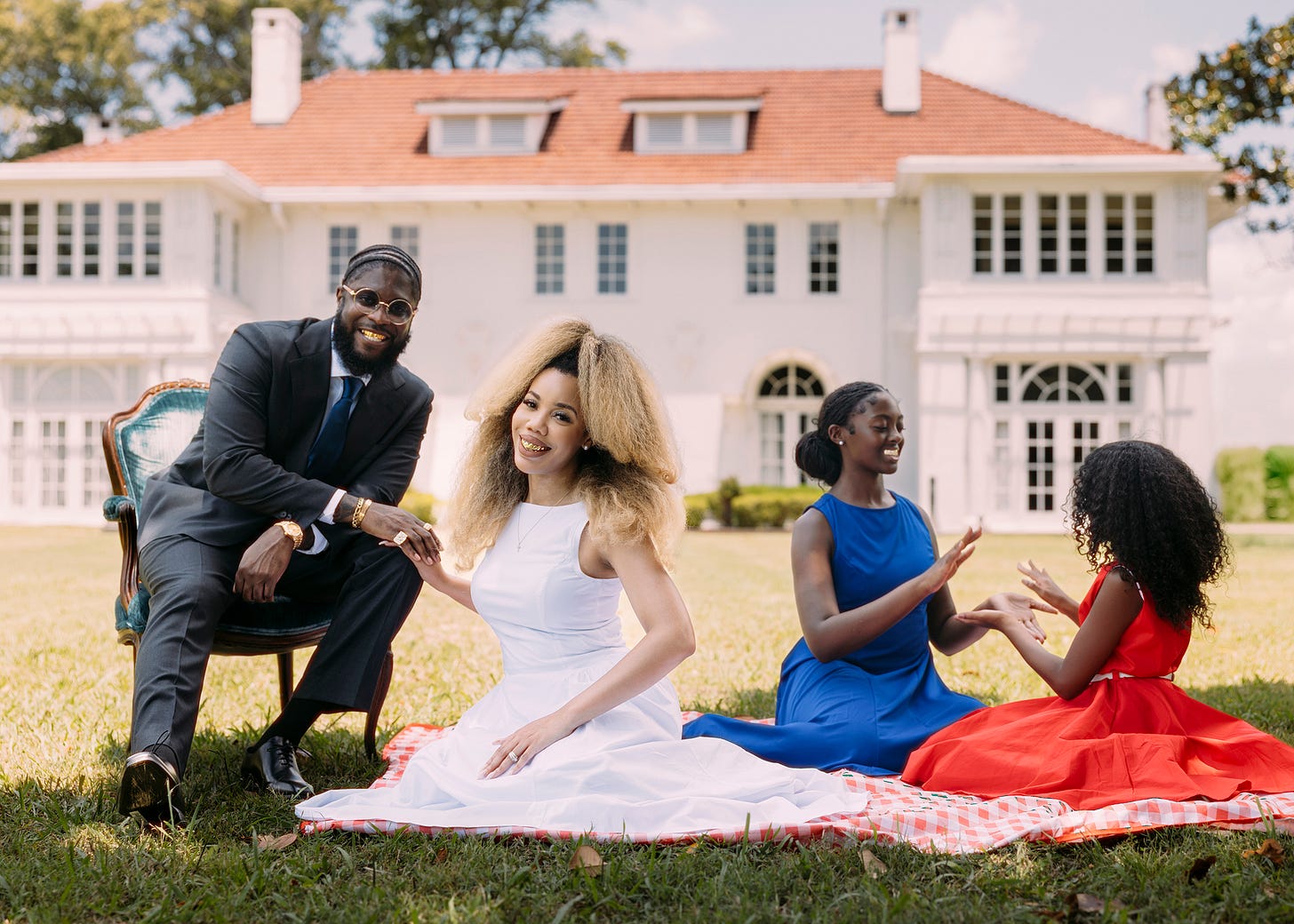
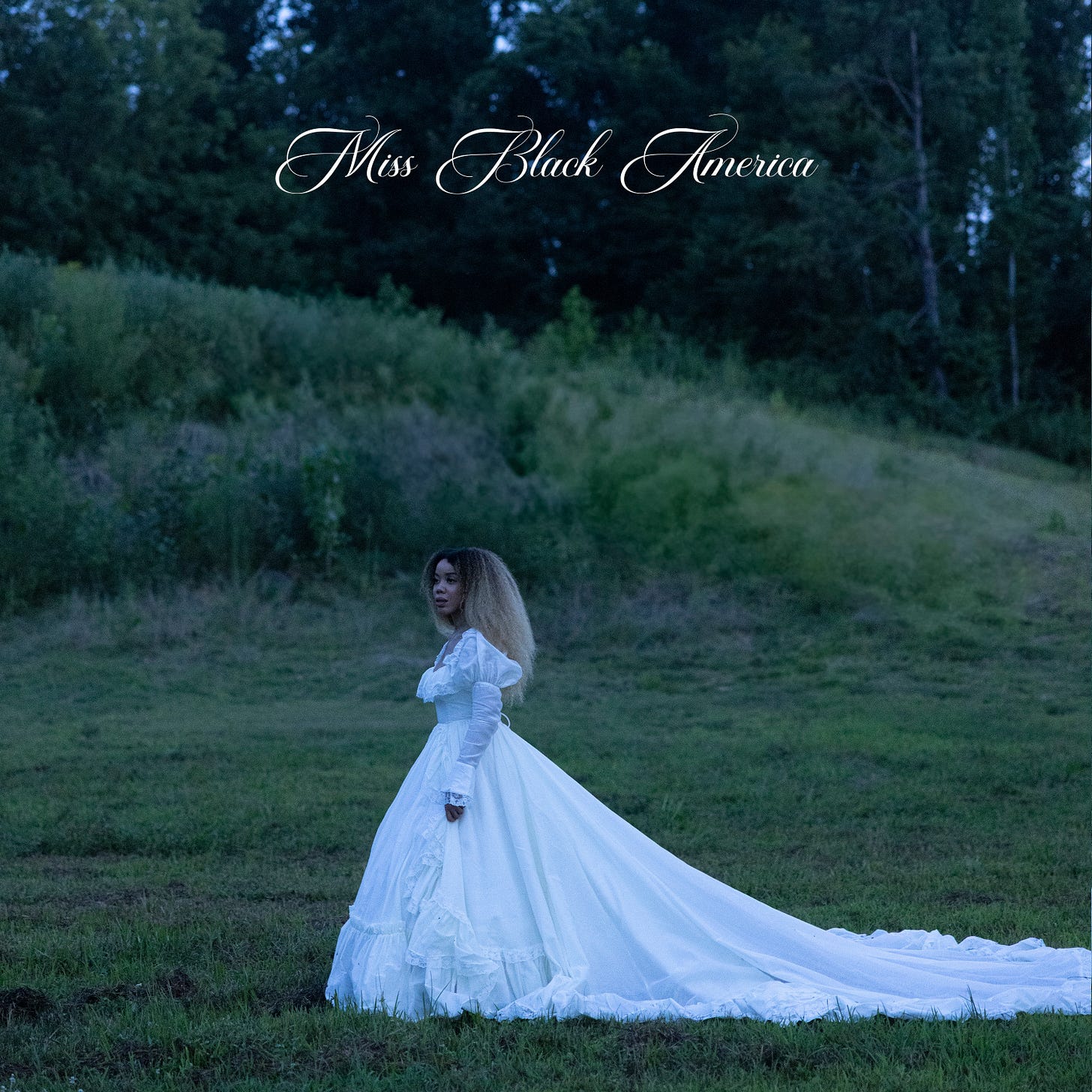
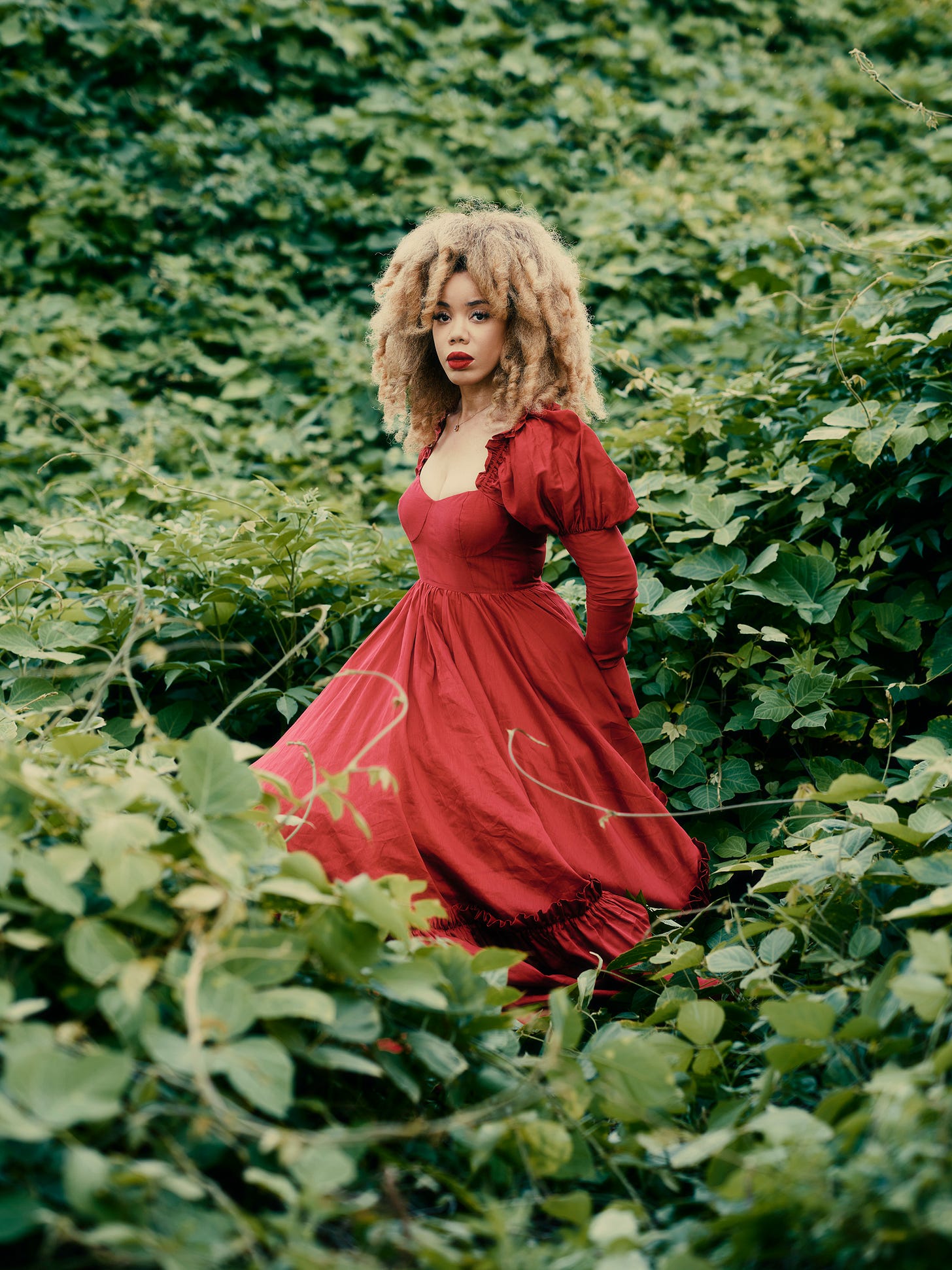
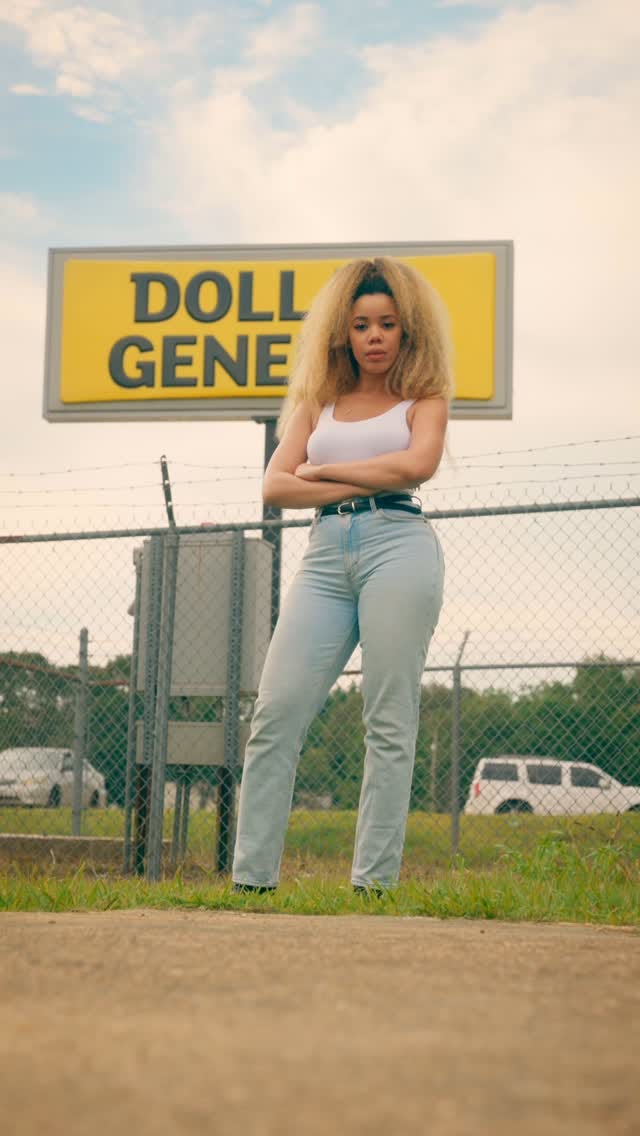
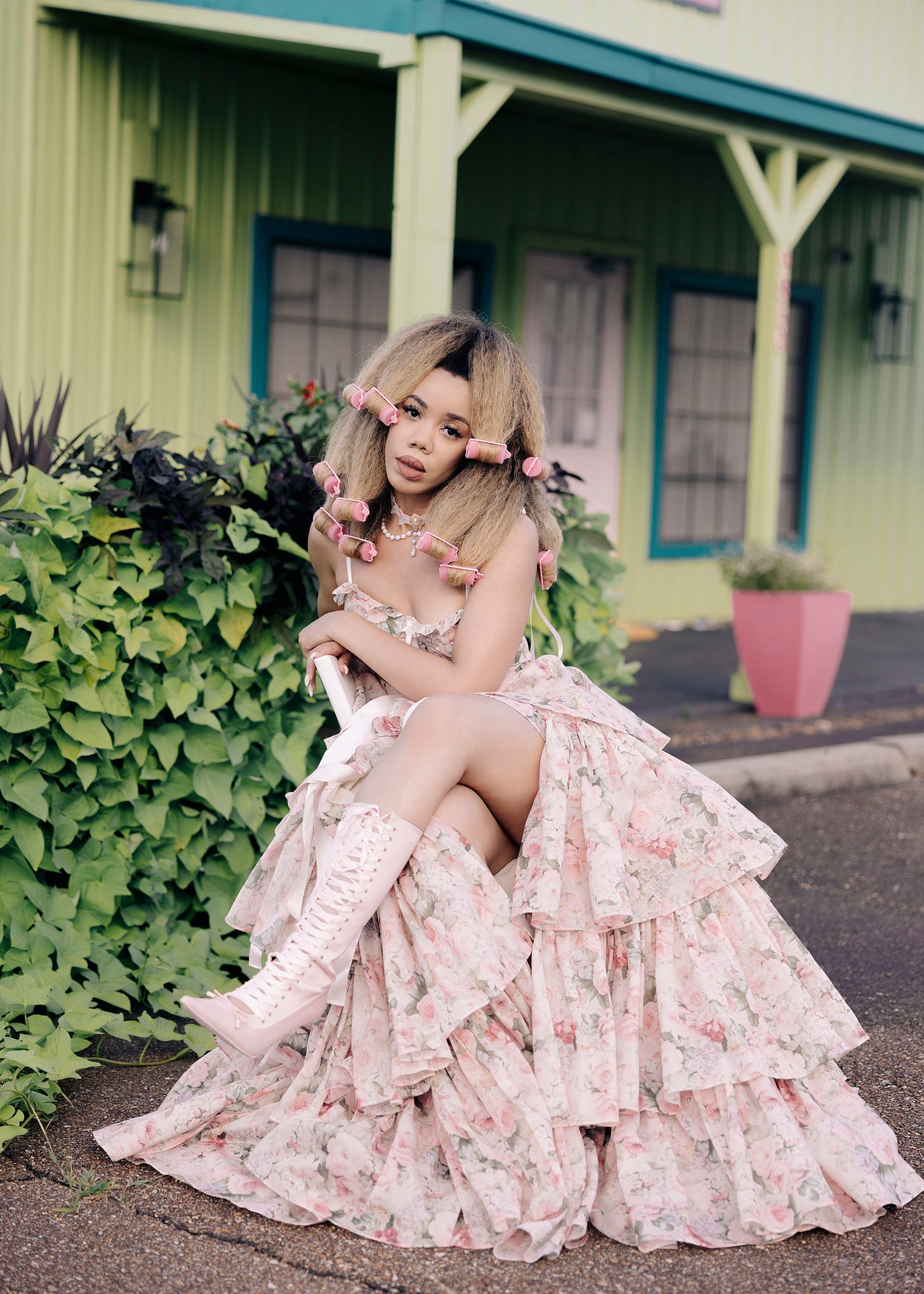
Love me some Kirby 🙌🏾
Her voice gives me chills every time